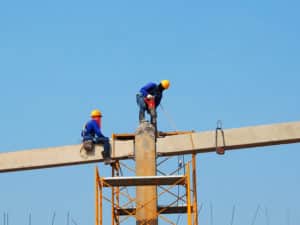Why Workers’ Compensation Adjusters Treat Workers Poorly
Introduction to Why Workers' Compensation Adjusters Treat Workers Poorly
A Quick Look at Workers' Compensation
Workers' compensation is a type of insurance that helps employees when they get hurt on the job. It pays for medical bills and provides money to workers who can't work because of their injuries. Employers buy this insurance to protect both their workers and themselves.

Why Workers' Compensation Adjusters Treat Workers Poorly
Why Fair Treatment Matters for Workers
When employees get hurt, they need help quickly. They might have medical bills piling up, and they could be unable to work. Fair treatment means treating workers with respect and giving them the support they need. It's essential for their well-being and their ability to recover from injuries.
The Problem: Adjusters Treating Workers Poorly
Sometimes, workers' compensation adjusters don't treat workers fairly. Adjusters are the people who look at a worker's claim and decide how much money they should get. Unfortunately, not all adjusters do their job well. This article will explore why some adjusters treat workers poorly and what we can do about it.
The Role of Workers' Compensation Adjusters
What Adjusters Do and Their Responsibilities
Workers' compensation adjusters have an essential job. They review the claims made by injured workers and decide how much money they should receive. They make sure the claims are valid and check the details, like medical reports and accident descriptions. Adjusters also talk to the worker, the employer, and doctors to get all the information they need.

Why Fair Treatment Matters for Workers
Why Accurate Claim Evaluation Matters
It's crucial for adjusters to evaluate claims accurately. When they do their job well, injured workers get the right amount of money to cover their medical bills and lost wages. If adjusters make mistakes, workers might not get enough money or could receive too much. Accurate claim evaluation helps workers recover and protects the workers' compensation system from fraud.
Reasons for Poor Treatment
Too Many Cases and Not Enough Time
One reason adjusters might treat workers poorly is that they have too many cases to handle. They might feel rushed and overwhelmed, so they don't spend enough time on each case. This can lead to mistakes and unfair treatment for the workers.
Money Matters: Financial Incentives
Sometimes, adjusters have financial incentives that encourage them to save money for the insurance company. This could make them more focused on cutting costs than helping injured workers. As a result, they might not treat workers fairly or give them the support they need.

The Role of Workers' Compensation Adjusters
Not Enough Empathy
Empathy means understanding and caring about how other people feel. Some adjusters might not have enough empathy, making it hard for them to understand the struggles injured workers face. This lack of empathy can lead to poor treatment and make workers feel like their needs don't matter.
Training Isn't Always Enough
Adjusters need good training to do their job well. Sometimes, they don't receive enough training or the right kind of training. This can lead to them not knowing how to handle complex cases or not understanding the importance of treating workers fairly. Inadequate training can result in poor treatment of workers and mistakes in the claims process.
Consequences of Poor Treatment
How Injured Workers Suffer
When adjusters treat workers poorly, it can make a bad situation even worse for the injured employees. They might not get the money they need to pay their bills or take care of their families. Poor treatment can also make workers feel stressed and disrespected, which can slow down their recovery.

Why Accurate Claim Evaluation Matters
Legal Trouble
If adjusters don't treat workers fairly, it can lead to legal problems. Workers might have to go to court to get the money they deserve. This takes time and money, and it can be stressful for everyone involved. Legal battles can also damage the reputation of the insurance company and the workers' compensation system as a whole.
People Think Negatively
When people hear about adjusters treating workers poorly, it can create a negative public perception of the workers' compensation system. People might start to think that the system is unfair and doesn't help those who need it most. This negative view can make it harder for injured workers to get the support they need and can damage the reputation of the insurance industry.
Solutions for Better Treatment
Fixing Workload and Time Management Problems
To help adjusters treat workers better, insurance companies should make sure they don't have too many cases. They can hire more adjusters or find ways to help them manage their time better. This will give adjusters the time they need to treat each worker fairly and make good decisions.

Consequences of Poor Treatment for Workers
Changing Financial Incentives
Insurance companies should rethink how they reward adjusters. They can create incentives that focus on helping workers, not just saving money. This will encourage adjusters to treat workers fairly and make sure they get the help they need.
Teaching Empathy in Training
Adjusters should receive training that teaches them how to be more empathetic. This can help them understand the challenges workers face and treat them with kindness and respect. Empathy training can make a big difference in how adjusters treat injured workers.
Improving Communication Skills
Good communication is essential for treating workers fairly. Adjusters should learn how to listen carefully, ask the right questions, and explain things clearly. This can help them understand workers' needs and make sure they get the support they deserve. Strengthening communication skills can lead to better treatment for injured workers and a more efficient claims process.
Conclusion to Why Workers' Compensation Adjusters Treat Workers Poorly
Summing Up the Main Points
In this article, we talked about why some workers' compensation adjusters treat workers poorly. We learned that heavy caseloads, financial incentives, lack of empathy, and inadequate training can all contribute to the problem. We also discussed the consequences of poor treatment and explored some solutions for making things better.
Let's Work Together for Improvement
Now that we understand the issues, it's time for everyone in the workers' compensation industry to work together to make things better. Insurance companies, adjusters, and employers should all focus on treating workers fairly and finding ways to improve the system.
Keep the Conversation Going
Change won't happen overnight, but it's essential to keep talking about these problems and working towards solutions. By having an ongoing dialogue and working together, we can create a workers' compensation system that truly supports and respects injured workers. If you believe you're being mistreated by an insurance adjuster, consider seeking a lawyer. Dial (844) 984-8414 to schedule a free and confidential case evaluation.
- Safely and Legally Navigating Parking Lots in California - July 15, 2024
- Navigating the Aftermath of a Highway Auto Accident in California - July 15, 2024
- An Overview of California's Commercial Truck Insurance Laws - July 15, 2024
